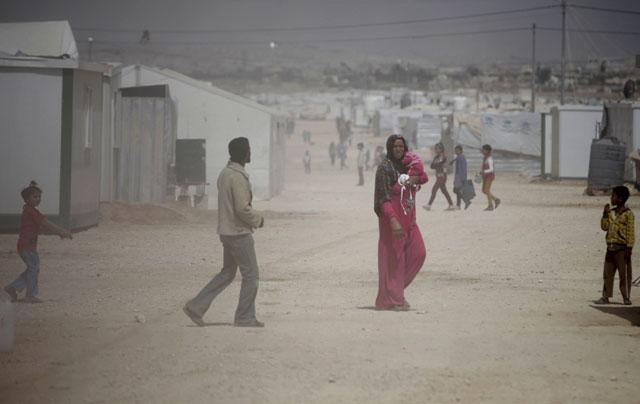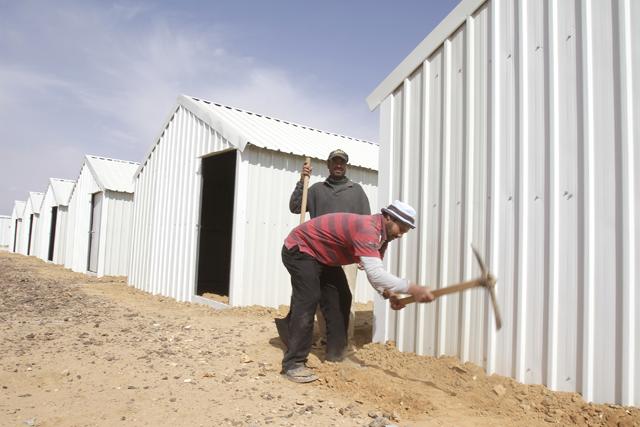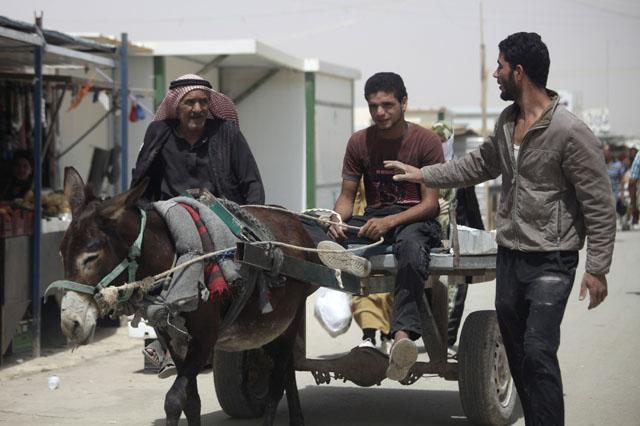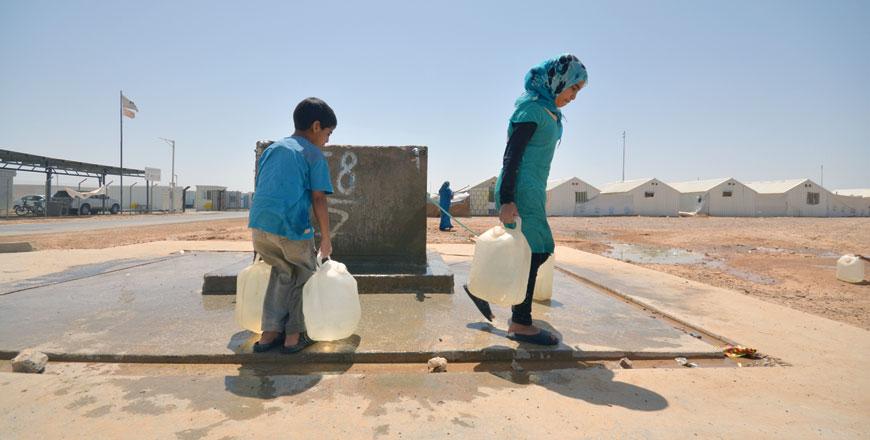You are here
Refugee influx raises Kingdom’s population by 10%, takes heavy toll on economy — Planning Ministry
By Khetam Malkawi - Jun 03,2014 - Last updated at Jun 03,2014

AMMAN — Without further commitment from the international community, it will not be easy for Jordan to handle the burden of hosting more than 1.3 million Syrians with a daily increase in the number of refugees crossing the border, the UNHCR said Tuesday.
To date, only 27 per cent of what the UN appealed for in January at a donor conference in Kuwait has been received, UNHCR Spokesperson Ali Bibi said.
The UN appealed for $6.5 billion at the Kuwait conference.
With no further commitment, “the response to the crisis and assistance to refugees will change,” Bibi told The Jordan Times without elaborating further on how refugee services will be affected by the shortage in funds.
This statement was made one day before World Bank (WB) President Jim Yong Kim’s visit to Jordan as part of a regional tour that also includes Saudi Arabia and Lebanon.
In a feature story published on the official website of the WB group, Kim was quoted as saying: “The international community needs to step up its support to the Jordanian and Lebanese hosting communities.”
“The people of these countries have demonstrated unprecedented generosity. They should not be left to shoulder this crisis alone,” he added.
Kim is also scheduled to visit the Zaatari Refugee Camp in Mafraq on Wednesday according to the UNHCR.
The WB website said the bank provided Jordan with rapid financial assistance of $150 million in July 2013 to help the country cope with the influx of refugees.
An additional $60 million grant was awarded to the Kingdom in October 2013 by the bank and a number of development partners including the United Kingdom, Canada, Switzerland and the Arab Fund. Another $250 million grant was approved on March 13, 2014.
Official figures indicate that only 600,000 of the 1.3 million Syrians in Jordan are registered as refugees with the
UNHCR, and 80 per cent of the total lives in host communities, which adds more pressure on the basic services.
The Kingdom’s total population has gone up by 10 per cent due to hosting Syrian refugees, according to a Planning Ministry document that was sent to The Jordan Times on Tuesday.
This has increased pressure on public finances, worsened the trade deficit and resulted in losses to key economic sectors.
In addition, it has exacerbated vulnerabilities of the poorest segments of the Jordanian population and deteriorated access to quality public services in the most-affected governorates.
“Increased spending is expected to have contributed to the budget deficit upsurge noted between 2010 and 2013. In addition, it has also partially offset government efforts to rein in deficit spending,” said the report, prepared by Planning Minister Ibrahim Saif.
Overall, it is estimated by the Central Bank of Jordan that the Syrian crisis will have reduced Jordan’s gross domestic product growth by 2 percentage points in 2013, undermining the impact that better control of budget spending, greater confidence in the local economy, slight improvement in tourism and remittances revenues, as well as international support through large foreign grants, could have had on the economy.
Meanwhile, the government estimates that more than $229 million is needed to provide subsidised items to the 600,000-strong refugee population. These items are: water ($19 million), flour ($60 million), electricity ($133 million), and household gas ($17 million).
The Planning Ministry document showed that the Kingdom’s exports to both Syria and Lebanon have dropped due to the crisis, decreasing by over 43 and 41 per cent respectively in 2013, compared to the previous year.
In addition, the increase in the number of Syrian refugees has led to imports rising by 22 per cent and 9 per cent in 2011 and 2012 respectively, thus contributing to the worsening of Jordan’s trade balance.
In addition, cheap imports from Syria had to be substituted from elsewhere at higher costs. Consequently, the trade deficit in 2013 was higher than that of 2012.
The Syrian crisis has also had a profound impact on the education sector, in particular on public schools, according to the Planning Ministry.
Jordan has allowed all students who have missed less than three years of schooling to enrol, unburdened by school fees, at local schools in order to ensure that refugee children enjoy the right to basic education.
Nearly 100,000 Syrian children are enrolled at public schools (excluding camps). There are 20,990 Syrian students being educated in refugee camps, and a further 8,000 placed on waiting lists, according to official figures.
Related Articles
This weekend witnessed the largest daily number of arrivals of Syrian refugees to the Azraq Refugee Camp, 100km east of Amman, Andrew Harper, the UNHCR representative to Jordan, said on Saturday.
The US has given more than $300 million in humanitarian assistance for relief programmes in Jordan since the Syrian crisis erupted in 2011, a US embassy spokesperson said Thursday.
AMMAN — More than half of the registered Syrian refugees in Jordan are below the age of 17, placing "tremendous" pressure on the Kingdom's r



















